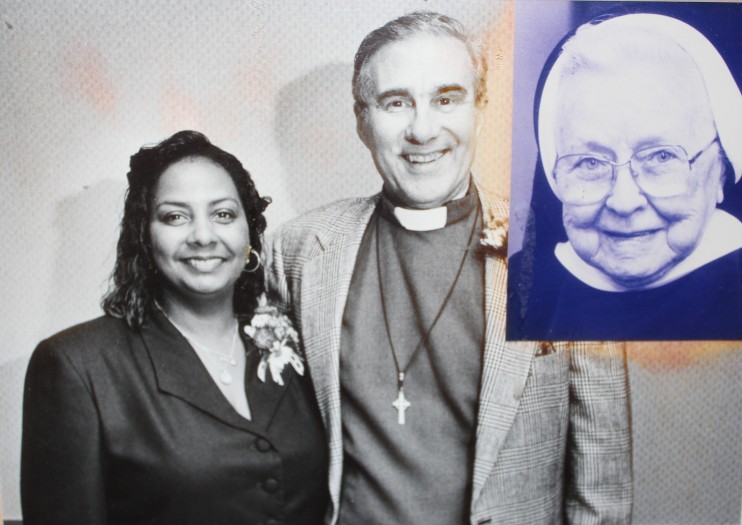
Sunbury
Chenay Costen knows the meaning of home and the significance of place. She grew up in Gates County in northeastern North Carolina on a farm that has been in her family for at least six generations. After college, there was no doubt about her returning to Sunbury to help her father save that farm when it was about to go under - when the number of farms owned by blacks began to decline rapidly.
She did save the farm. And during the last 20 years, Costen in many ways has saved a generation or two of her fellow citizens in one of the poorest and most isolated parts of North Carolina. She has battled deepseated poverty, illiteracy and apathy.
In a five-county area including Camden, Chowan, Pasquotank and Perquimans as well as Gates, Costen has advocated fiercely for the poor, many of whom are black. Her work reads like a combination of social work and economic development. She founded the United Family Support Services to provide such services as GED classes, day care, meals, crime prevention, home ownership classes, preschool classes, transportation, job creation, job training and social justice awareness. Recently, she founded a community development corporation.
Challenging the status quo, Chenay Costen has made a tremendous difference in her part of the state. She has given hope and purpose to people who knew only poverty and despair.
Belmont
Mother Mary Benignus Hoban came to America from Ireland 71 years ago, at age 20. This tiny Catholic nun has made a difference in the lives of thousands - from teaching rural children in Union and Sampson Counties, to hospital and college management in Buncombe and Gaston Counties.
But her work with mentally and physically handicapped children is truly remarkable. Were it not for Mother Benignus, thousands of children either would have died or spent their lives rejected and miserable. People who know her call her a saint.
In 1955, a severely handicapped and medically fragile infant was taken by her mother, a millworker, to a daycare center operated by the Sisters of Mercy in Belmont. No one expected the baby to live, but Mother Benignus and the other nuns loved her and found what medical care was available. The infant, Maria, thrived in the care of Mother Benignus. Today, Maria Morrow is a bright, engaging woman who works at a special place in Belmont called Holy Angels.
Holy Angels began because of Maria, and it has become what it is today because Mother Benignus cared for it, just as she cared for the children. Over 42 years, thousands of children have been able to live, learn and love at Holy Angels.
She suffered a stroke earlier this year, but Mother Benignus still visits the children every afternoon. At 91, she spends much of her day in prayer, and she says much of her praying is for her children.
Oxford
As the nation and state are examining the plight of race relations, the town of Oxford in Granville County offers some good lessons. Quietly and courageously, the Reverend Harrison Simons has led the people of Oxford for more than 25 years - not just parishioners in his two Episcopal churches but throughout all of Granville. In the old sense of the term, Father Simons considers himself a parish priest.
Father Simons, a Massachusetts native, expected to stay in Oxford only a few years when he came there in 1970 from Virginia. Events intervened to set him on a course for the rest of his ministry.
During his first few days in Oxford, he helped to quiet a tense situation. A series of warehouse fires had torn the community apart because some whites suspected the young activist Benjamin Chavis was involved. Father Simons stood by the Chavis family, who worshiped at St. Cyprian’s, the black Episcopal church in town. Later he patiently defused other racial confrontations in Oxford.
Father Simons had been called to serve St. Stephens, the predominantly white church. But when the minister at St. Cyprian’s retired, he became rector of the black church also and set out to bring the churches together. Now the two — “The Episcopal Churches of Oxford” — share staff and work together on social programs. He and his churches have been leaders in promoting racial harmony and social justice. In many ways, Harrison Simons has been the conscience of the community.